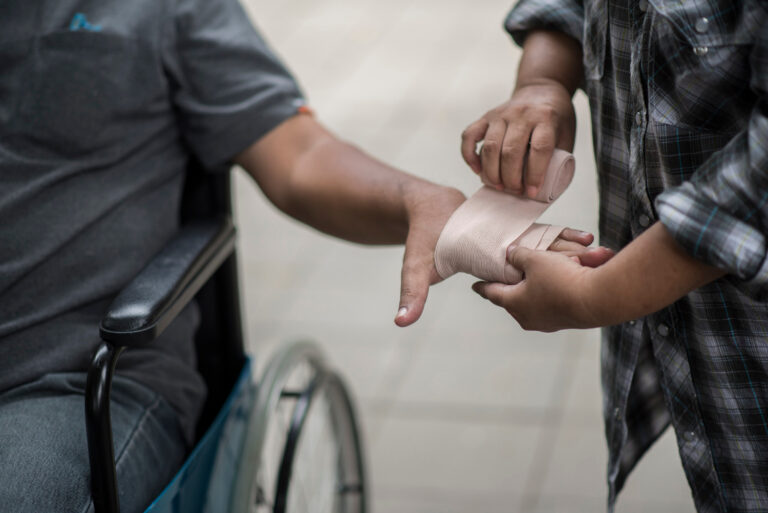
At JeffMcKnightLaw, we understand that real-life civil cases can be both fascinating and complex. Whether it’s a dispute between neighbors or a disagreement over a contract, these cases shape our everyday lives in surprising ways. I want to share some captivating examples with you to highlight the importance of experienced legal guidance. If you’re dealing with a civil matter, let us help you navigate through it with confidence.
Based on real life, examples of civil cases include disputes over contracts, property ownership, and personal injury claims. These often involve disagreements between individuals or organizations. Such cases are typically resolved in civil court rather than criminal court.
Introduction to Civil Cases
Civil cases are intriguing legal battles where individuals or entities clash over financial compensation or demand specific actions to resolve disputes.
In a basic sense, civil cases are different from criminal cases, which are about breaking the law and can lead to government punishment. In civil cases, the person who starts the lawsuit is called the plaintiff, and the person being sued is the defendant.
A civil case begins when the plaintiff files a complaint with the court, explaining their claims against the defendant. The defendant then gets a chance to respond to the complaint and present their own evidence. Both sides can gather information from each other through processes like depositions (interviews under oath), requests for documents, and written questions called interrogatories.
Civil cases can be settled in different ways, such as through negotiations, mediation (where a neutral person helps them agree), arbitration (where a neutral person makes a decision), or a trial by a judge or jury. In essence, the evidence needed to win a civil case is usually less than in a criminal case. The plaintiff just needs to show that it’s more likely than not that the defendant is responsible.
Civil cases can involve many issues, such as personal injury, contract disagreements, property disputes, and family matters like divorce and child custody. The results of a civil case can include the defendant paying money to the plaintiff, being ordered to do or stop doing something, or clarifying the legal rights of both parties.
In short, civil cases help resolve disagreements between people or organizations, often involving compensation or other remedies.
Types of Civil Cases
Civil cases encompass various types, including contract disputes, property disputes, and family law matters, each addressing distinct legal issues.
Essentially speaking there are different types of civil cases. One common type is a personal injury case, where someone says they were hurt because of what another person did. Another type is a breach of contract case, where someone argues that the other person did not keep their promise in a written or spoken agreement. Property disputes are also common, involving arguments over who owns something or where the property lines are.
Family law cases deal with things like divorce, child custody, and adoption. These cases can be very emotional and often need careful negotiations to solve. Employment disputes are another type, involving issues like being fired unfairly, discrimination, or not being paid what you are owed. In other words, these cases often require a good understanding of employment laws.
Civil rights cases involve violations of a person’s legal rights, like discrimination or police misconduct. These cases can be complicated and may impact society in big ways. Probate cases deal with distributing a deceased person’s belongings and may involve fights over wills or trusts.
In general, civil cases cover many different legal issues and can be simple or complex. Each case needs a different approach and understanding of the law. It’s important to get help from a qualified attorney to handle the various problems that may occur of civil litigation.
Famous Civil Case Examples
One famous civil case example is the estate lawsuit against O.J. Simpson, where he was found liable for wrongful death despite being acquitted in the criminal trial.
In concise terms, the Simpson trial is about O.J. Simpson, a former football player, who was accused of killing his ex-wife Nicole Brown Simpson and her friend Ronald Goldman in 1994. The trial received a lot of media attention and divided public opinion.
Another famous case is the lawsuit by Rodney King’s family against Los Angeles for police brutality. King’s beating by police was caught on video and sparked national outrage.
Another significant case was Apple Inc. vs. Samsung Electronics Co., where the two tech giants had a lengthy legal battle over patents. These are some well-known civil cases that have had a profound impact on society and the legal system.
How Civil Cases Differ from Criminal Cases
Civil cases address disputes over legal rights or responsibilities between parties, whereas criminal cases deal with offenses against the state.
All in all, civil cases and criminal cases are different ways the legal system handles disputes.
In civil cases, the goal is to settle disagreements and compensate the person who was wronged. The person who starts the case is called the plaintiff, and the one being sued is the defendant. The plaintiff must show that their side of the story is more likely true than not.
In criminal cases, the government takes action against someone accused of a crime. The goal here is to punish the accused person (the defendant) and keep society safe from harm. As a rule, the government must prove the defendant is guilty beyond a reasonable doubt, which is a higher standard than in civil cases.
The outcomes for the defendant are also different in these two types of cases. In civil cases, they might have to pay money or follow a court order. In criminal cases, they could face fines, probation, or even go to jail.
In short, civil cases are about sorting out disputes and helping victims, while criminal cases focus on punishing bad behavior and protecting the public.

Steps in a Civil Case Process
A civil case process kicks off when the plaintiff files a complaint, setting the wheels of justice in motion.
In concise terms, after the defendant gets the complaint, they reply with an answer. Then, both sides share information and evidence in a process called discovery. This can include interviews, written questions, and requests for documents.
Before the trial, either side might file motions to address issues like dismissing the case or asking for a judgment without a trial. If the case goes to trial, both sides will present their arguments and evidence to a judge or jury.
The judge or jury will then decide the outcome based on the evidence. All in all, if the plaintiff wins, the defendant might have to pay money or do something else the court orders. If the defendant wins, the case is dismissed.
If either side thinks there were mistakes during the trial, they can appeal to a higher court. This court will review the case and make a final decision.
Throughout the process, both sides can also try to reach an agreement, called a settlement. If they settle, there’s no need for a trial. If they can’t agree, the case continues through each step until a final decision is made.
My Concluding Thoughts
Civil cases in real life exemplify the importance of resolving disputes through the legal system. From contract disputes to personal injury claims, these cases demonstrate the significance of upholding legal rights and seeking justice.
What JeffMcKnightLaw is recommending to keep up with is, through the lens of these examples, we see how individuals can seek resolution and compensation for harm suffered in a fair and just manner.
References
- “The Run of His Life: The People v. O.J. Simpson” by Jeffrey Toobin, Random House
- “Anatomy of Injustice: A Murder Case Gone Wrong” by Raymond Bonner, Vintage
- “Conviction: The Untold Story of Putting Jodi Arias Behind Bars” by Juan Martinez, William Morrow






